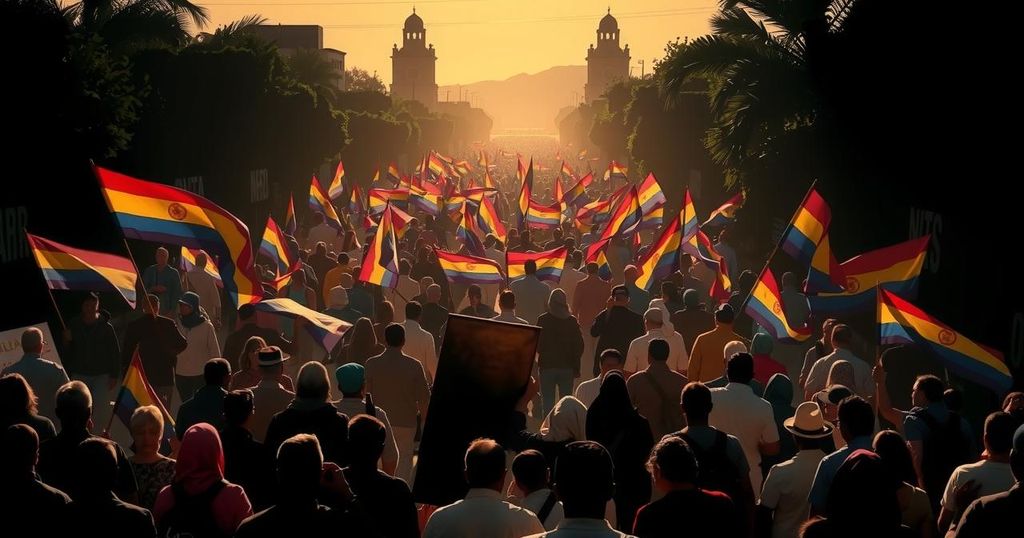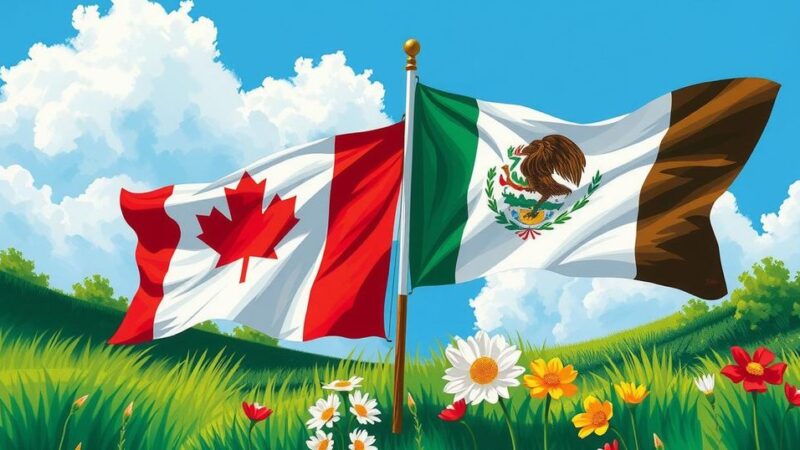Clashes erupted in La Paz, Bolivia, between supporters of former President Evo Morales and counter-protesters of the current government led by President Luis Arce. In a march organized by Morales, tensions escalated when government supporters blocked the way while protesting against economic failures attributed to Arce. The unrest underscores the deepening political feud ahead of the 2025 elections, with accusations from both sides regarding destabilization efforts and human rights violations.
In La Paz, Bolivia, a significant escalation in political tensions was evidenced this past week as clashes between supporters of former President Evo Morales and counter-protesters supportive of the current government led to over a dozen injuries. The unrest occurred during a protest march initiated by Morales, dubbed the “March to save Bolivia,” where he mobilized approximately 10,000 of his followers from Caracollo towards the capital. Initially peaceful, the demonstration encountered a group of government backers near Panduro, who were armed with tear gas, stones, and firecrackers. Shouting, “Evo, you traitor, your time has passed,” the counter-protesters confronted Morales’ supporters, who retaliated with projectiles and chants declaring, “Evo, Bolivia wants you back!” These confrontations illustrate the exacerbating political rift between Morales and current President Luis Arce, particularly in light of the upcoming 2025 elections. Morales and Arce, who previously aligned under a socialist political agenda—Morales serving from 2009 until 2019 and Arce from 2020 onward—have seen their relationship sour significantly since 2021 due to leadership disputes within their party. Critics of Arce are increasingly blaming him for the country’s ongoing economic difficulties and fuel shortages. In response, Arce has accused Morales of attempting to destabilize his administration through mobilizing protests. Eduardo Del Castillo, a high-ranking official in Arce’s government, described the protest as a “death march” with intentions to undermine democracy, while Morales alleged that undercover police were sent to incite chaos during the demonstration. Despite a court ruling in 2023 that Arce contends disqualifies him, Morales has declared his intention to run for the presidency again in the next election.
The current unrest in Bolivia is rooted in a complex political rivalry between President Luis Arce and former President Evo Morales. Both figures, previously esteemed leaders of the same socialist political movement, have encountered significant tensions regarding party control and governance strategies since their political alignment began to falter in 2021. Morales’ exit from the presidency in 2019 led to Arce’s election, but dissatisfaction among Morales’ supporters, particularly regarding economic challenges and fuel shortages under Arce’s leadership, has further fueled the protests. These events are compounded by the historical context of Morales’ controversial resignation amid allegations of electoral fraud and subsequent military intervention, which continues to shape Bolivia’s political discourse.
The clashes in Bolivia highlight a significant moment in the ongoing power struggle between President Luis Arce and former leader Evo Morales. As both political figures approach the next election cycle, the protests reveal deep divisions among their supporters. With accusations exchanged regarding attempts to undermine democracy and mobilization strategies, the future political landscape of Bolivia remains fraught with tension and uncertainty. This conflict is indicative of broader issues within the Bolivian political system and raises questions about the nation’s democratic integrity as it heads toward a pivotal electoral year.
Original Source: timesofoman.com






